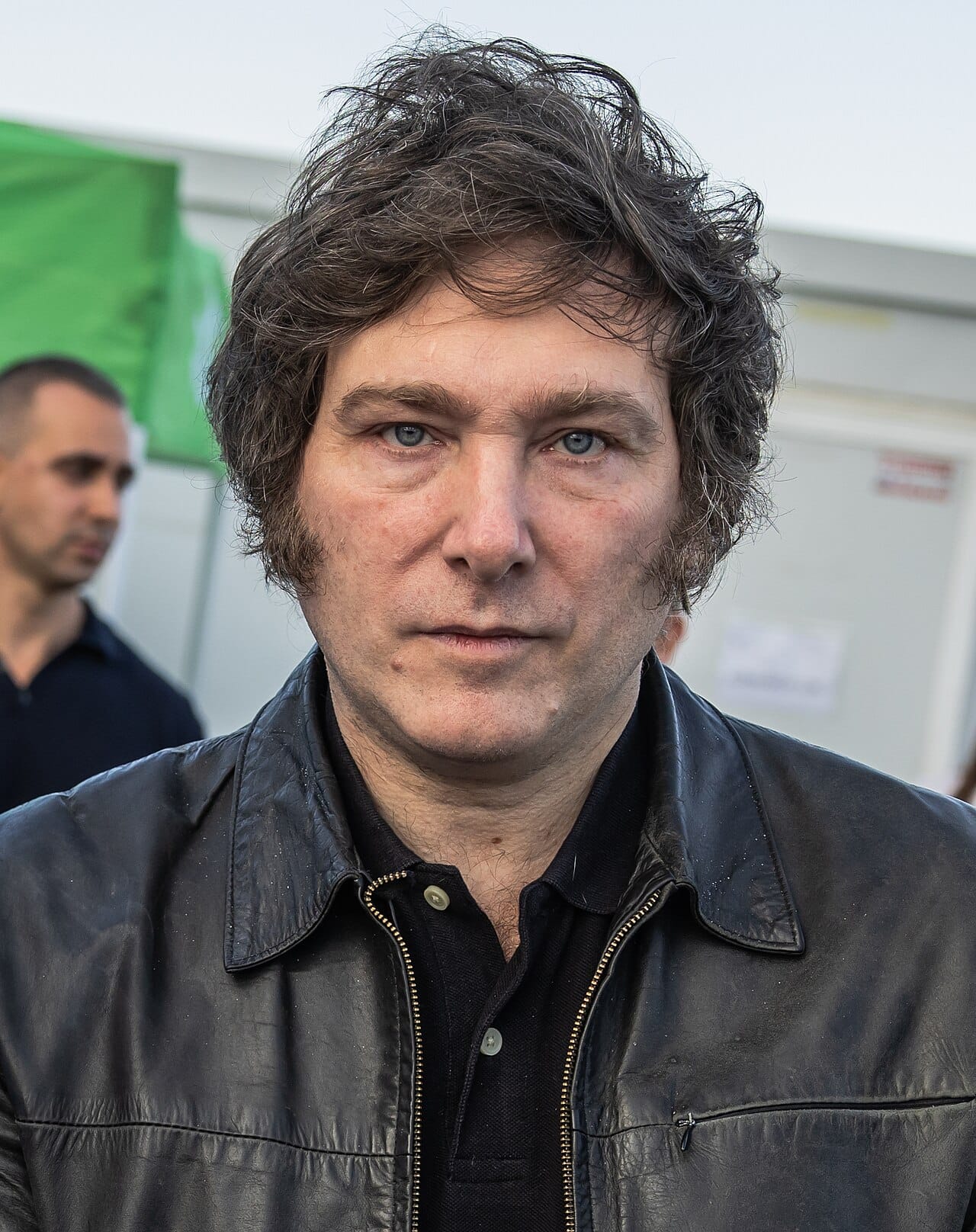Unconventional Paths to Power: Is Javier Milei another US' "Volodymyr Zelensky"?
Milei, previously known as a television pundit, emerged as a political outsider and campaigned against the establishment. His victory represents a significant shift towards the right for Argentina

In a world where political landscapes are often dominated by traditional politicians, occasional outliers emerge, armed with unconventional backgrounds and fresh perspectives. Such is the case with Javier Milei, the newly elected president of Argentina, and Volodymyr Zelensky, the President of Ukraine.
Both individuals come from non-political backgrounds, Milei as a former TV pundit and Zelensky as a comedian. Despite their disparate contexts, these two leaders share intriguing similarities in their rise to power and the challenges they face.

Milei and Zelensky's ascension to political power from non-political backgrounds is a striking parallel. Milei, a self-described "anarcho-capitalist," won the Argentinian presidential election on a platform of radical economic reform, advocating for the abolition of the central bank, adoption of the US dollar as the country's currency, and significant reduction in public spending.
Milei - Zelensky
Zelensky, on the other hand, became the President of Ukraine in 2019, leveraging his background as a comedian to connect with disenchanted voters tired of traditional politics. Both leaders captivated their respective electorates with their charisma and promises of change, upending the political status quo.
Milei and Zelensky both hold strong economic convictions that have resonated with their supporters. Milei's economic policy proposals, such as dollarization and deep public sector reforms, aim to address Argentina's high inflation rate and reinvigorate the struggling economy. Similarly, Zelensky's focus on economic reform reflects the challenges faced by Ukraine, including the need to attract investment, reduce corruption, and stimulate economic growth. While their specific policy approaches differ, both leaders prioritize addressing their country's economic woes through unconventional means.
Beyond their economic agendas, Milei and Zelensky share conservative positions on social issues. Milei opposes abortion rights and dismisses climate change as a "lie of socialism." Zelensky, too, has faced criticism for his conservative stance on issues such as LGBTQ+ rights.
These positions align with their conservative voter base and highlight the different social landscapes in Argentina and Ukraine. However, it's essential to note that their policy platforms extend beyond these social issues and encompass broader economic and governance concerns.
Geopolitical Context
While Milei and Zelensky differ in terms of geopolitical context, their approaches to international relations share some commonalities. Milei has expressed a preference for strengthening ties with the United States and has criticized China and Brazil, aligning himself with a more pro-Western stance.
Zelensky, on the other hand, has navigated the complex landscape of Ukrainian-Russian relations, emphasizing the need for international support amid ongoing conflict. Both leaders recognize the significance of geopolitics and its impact on their countries.
The paths to power of Javier Milei and Volodymyr Zelensky offer compelling insights into the changing landscape of global politics. Their non-traditional backgrounds and charismatic appeal have attracted voters disillusioned with establishment politicians.
While Milei's victory in Argentina signifies a shift to the right, Zelensky's Ukrainian presidency reflects the country's unique geopolitical challenges. Their policy platforms diverge, reflecting the specific needs and contexts of their respective nations. As these unconventional leaders face the daunting task of governing, the coming years will shape their ability to turn promises into reality and bring about meaningful change.
Remarkable turn of events
In a remarkable turn of events, Argentina has elected Javier Milei, a far-right economist, as its new president in provisional survey results. Milei, previously known as a television pundit, emerged as a political outsider and campaigned against the establishment. His victory represents a significant shift towards the right for Argentina, as Milei's anti-establishment platform resonated with the voters.
During his campaign, Milei put forward several bold promises that are set to shape his presidency. Foremost among his economic policies is the proposal to dollarize Argentina's currency. This would involve adopting the US dollar as the official currency, relinquishing control of the country's monetary policy to decision-makers in Washington. Furthermore, Milei plans to dismantle the central bank and implement fundamental economic reforms that may entail some pain for the public sector.
Another key aspect of Milei's agenda revolves around reducing government spending. He has pledged to slash public expenditure, potentially by closing various ministries and eliminating public subsidies. Milei's vision is geared towards a more streamlined and efficient government that focuses on core responsibilities.
Conservative social views
On the social and security front, Milei advocates for a policy of "zero tolerance" towards crime. He aims to equip, train, and empower the security forces with advanced technology to combat the rising crime rates. With conservative social views, he opposes abortion rights and challenges climate change as being a "lie of socialism." However, in order to maintain a broader appeal, Milei has toned down some of his more controversial ideas, such as the free bearing of arms and the termination of social welfare programs.
In terms of foreign policy, Milei has expressed a desire to strengthen ties with the United States, while being critical of China and Brazil. He believes in a more assertive stance against communism and has vowed not to engage with "communists." These positions underline the new direction Argentina may take in its international relationships under Milei's leadership.
Milei's victory represents a seismic shift to the right for Argentina, signaling potential radical changes in the country's economic and social landscape. The comparisons drawn between Milei and Volodymyr Zelensky, the President of Ukraine, stem from their shared status as non-traditional politicians with backgrounds in entertainment.
A comedian
It is worth noting that while the two share this similarity, the context and specific policy platforms they navigate differ significantly. Zelensky, a former comedian-turned-president, assumed office against the backdrop of geopolitical tensions and conflict with Russia. Conversely, Milei's presidency emerges amidst economic challenges, including soaring inflation rates and high poverty levels.
Milei's radical economic ideas and conservative social views have generated both enthusiasm and concern among the public. However, it is important to recognize that his presidency will encounter formidable hurdles, including a divided legislature and a struggling economy.


